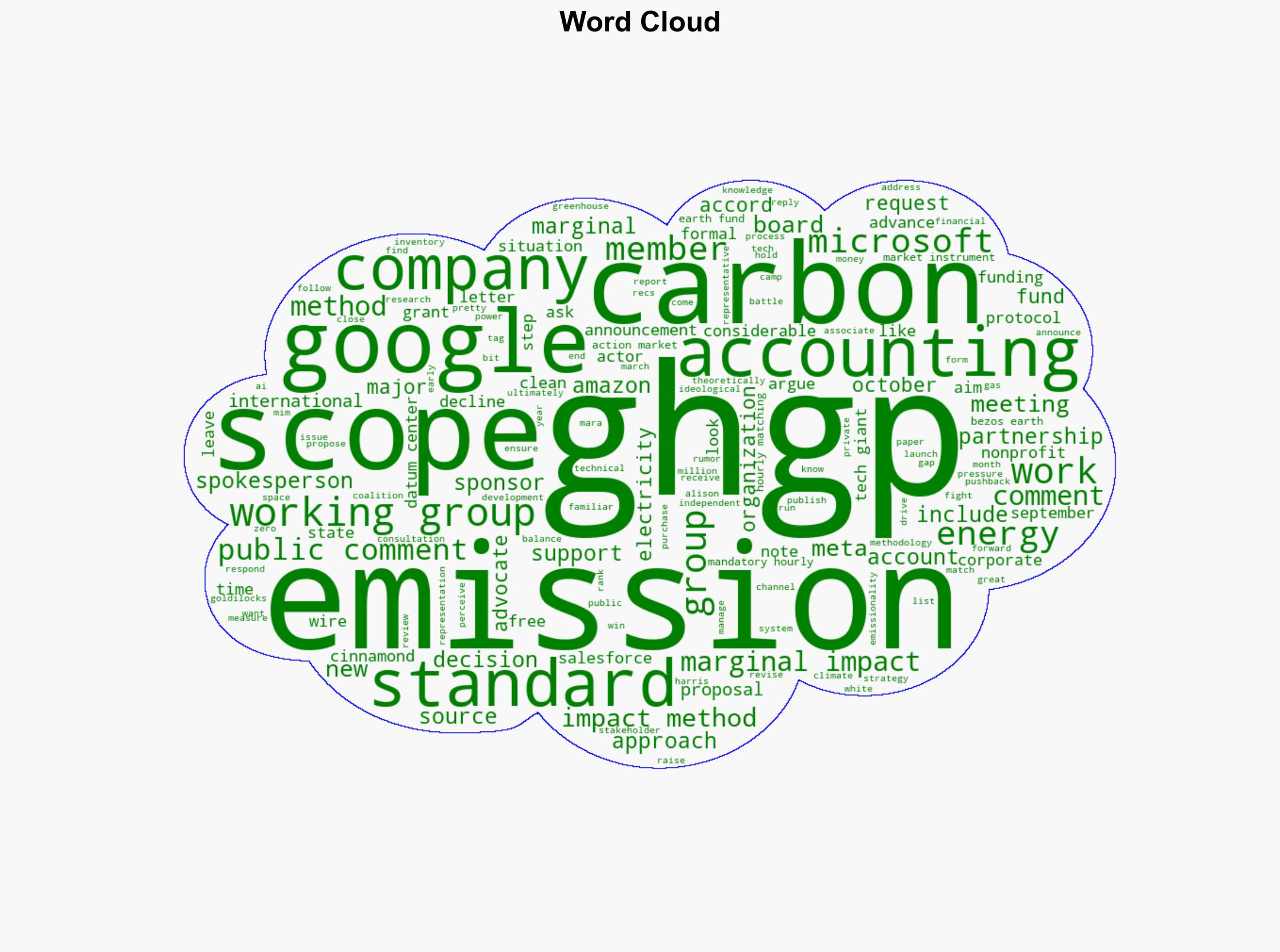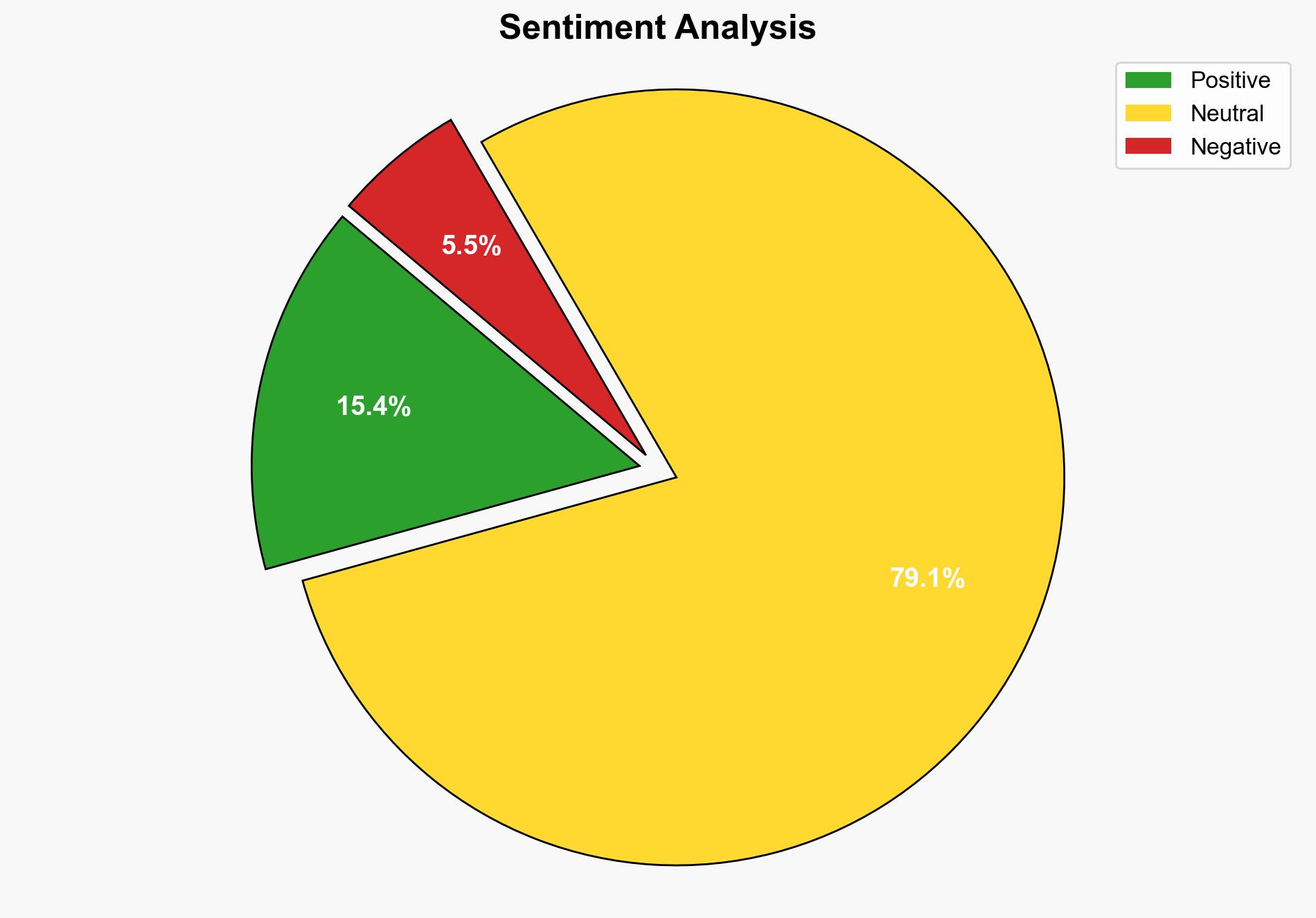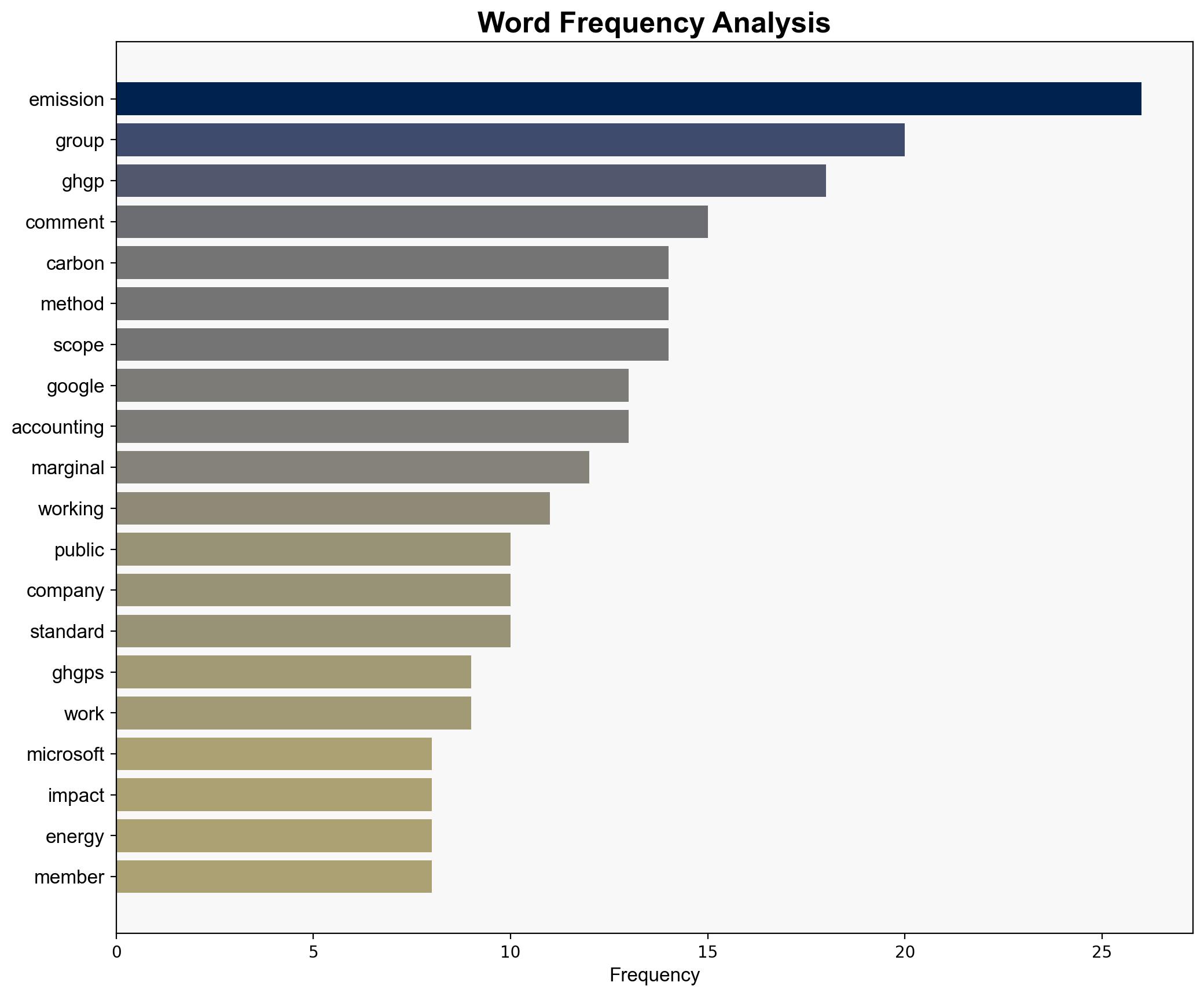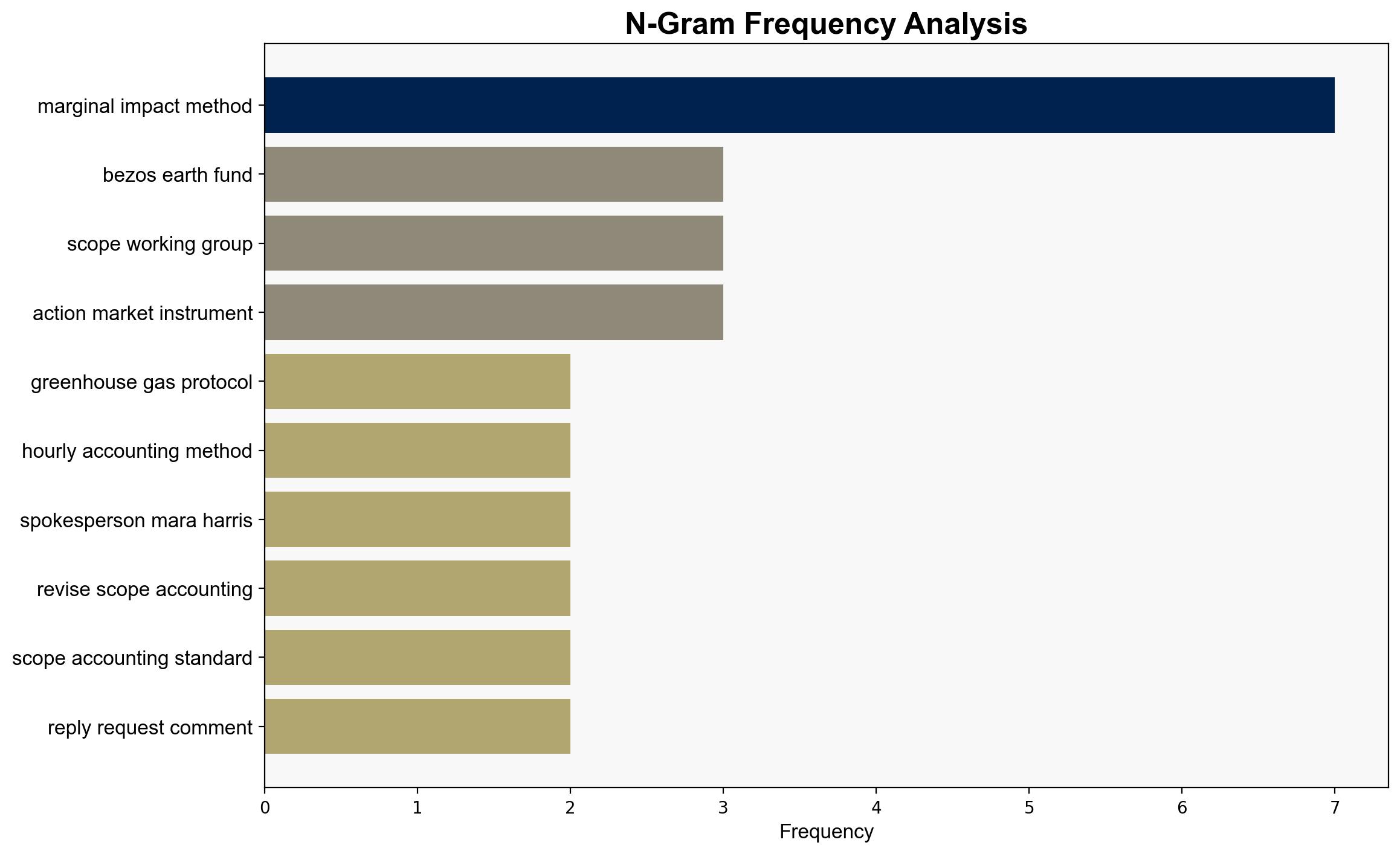A Fight Over Big Techs Emissions Has the Greenhouse Gas Protocol Caught in the Crossfire – Wired
Published on: 2025-10-30
Intelligence Report: A Fight Over Big Techs Emissions Has the Greenhouse Gas Protocol Caught in the Crossfire – Wired
1. BLUF (Bottom Line Up Front)
The most supported hypothesis is that the ongoing conflict over carbon accounting standards is driven by strategic positioning among tech giants to influence future regulatory frameworks in their favor. Confidence level: Moderate. Recommended action: Monitor developments in the Greenhouse Gas Protocol (GHGP) revisions and engage in dialogue with stakeholders to ensure balanced representation and transparency in the process.
2. Competing Hypotheses
1. **Hypothesis A**: Tech companies like Google and Microsoft are advocating for the GHGP’s hourly accounting method primarily to enhance their environmental credentials and align with their existing carbon-free energy goals. This approach could provide them with a competitive advantage by setting a standard that they are already equipped to meet.
2. **Hypothesis B**: The push for specific carbon accounting methods is a strategic maneuver by tech giants to shape future regulatory environments, potentially marginalizing competitors who favor alternative methods like the use of renewable energy certificates (RECs).
Using the Analysis of Competing Hypotheses (ACH) 2.0, Hypothesis B is better supported due to the significant lobbying efforts and financial investments by these companies, indicating a broader strategic interest beyond mere environmental impact.
3. Key Assumptions and Red Flags
– **Assumptions**: It is assumed that the GHGP revisions will significantly impact corporate carbon accounting practices and that tech giants have the capability to influence these revisions.
– **Red Flags**: The involvement of corporate-sponsored research and potential bias in the working group composition could skew the revision process. The lack of comments from certain companies like Microsoft and Salesforce may indicate strategic reticence.
4. Implications and Strategic Risks
– **Economic**: Changes in carbon accounting standards could alter market dynamics, affecting companies’ operational costs and competitive positioning.
– **Geopolitical**: International standards influenced by these revisions could impact global trade and environmental policies.
– **Cyber**: Increased data transparency requirements may expose companies to cybersecurity risks.
– **Psychological**: Public perception of corporate environmental responsibility could shift, impacting brand reputation and consumer trust.
5. Recommendations and Outlook
- Engage with GHGP stakeholders to advocate for a balanced and transparent revision process.
- Monitor tech giants’ lobbying activities and public statements for shifts in strategy.
- Scenario Projections:
- Best Case: Balanced revisions lead to enhanced global carbon accounting standards.
- Worst Case: Biased standards favor certain companies, leading to market distortions.
- Most Likely: Incremental changes with ongoing corporate influence and negotiation.
6. Key Individuals and Entities
– Google (Mara Harris)
– Microsoft
– Amazon
– Meta
– Salesforce
– Jesse Jenkins (Princeton University)
7. Thematic Tags
corporate strategy, environmental policy, regulatory influence, carbon accounting, tech industry lobbying




